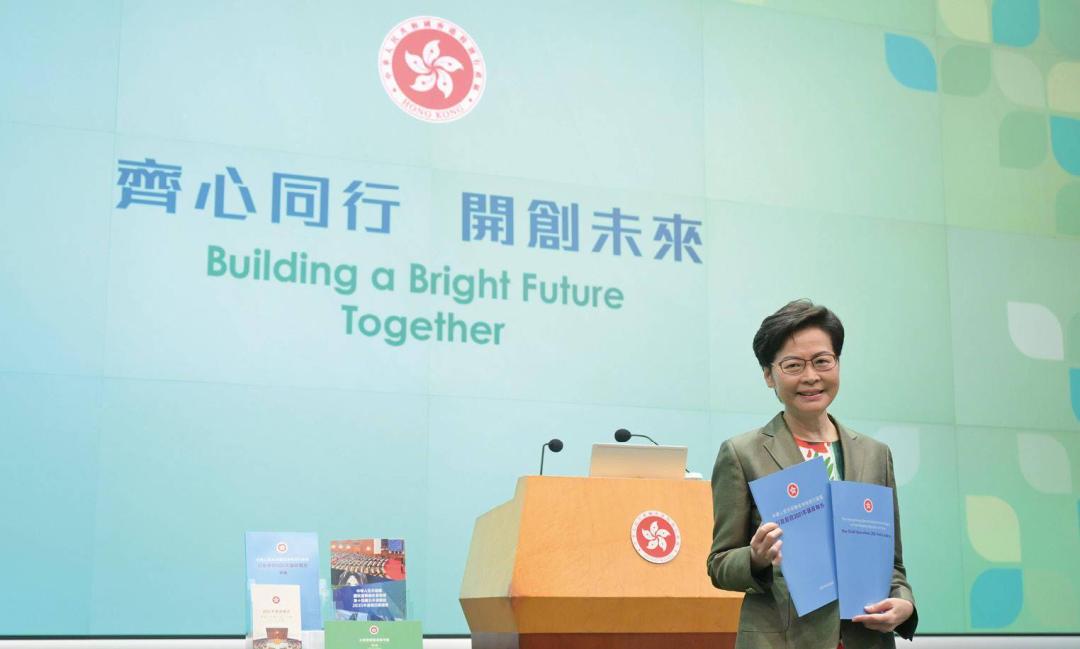This episode will discuss the issue of education in the Policy Address, especially a very important but inconspicuous part, which is the 148th paragraph of the Policy Address, which reads:
Moral education is an important part of school education. In order to establish students' positive values and attitudes, the Education Bureau has set up a funding scheme through the Quality Education Fund in recent years to support schools in promoting values education and help students face adversity positively and establish positive thinking. In view of the adverse impact of online fake information, we have strengthened the cultivation of media and information literacy of teachers and students, and made good use of the "Quality Education Fund" to support schools to promote media and information literacy education, teach students to distinguish between the true and false information, build the ability to think carefully and clearly, and consolidate values education.

If you are not in the field of education, you may not feel anything special when you see this passage. But if people in the education sector see it, there are at least two aspects that will attract particular attention: the first is the establishment of a funding scheme through the "Quality Education Fund" to support schools to promote values education, which is an eternal and correct approach that no one opposes. But why promote it through the "Quality Education Fund"? The so-called use of "quality education funds" means two characteristics: first, content self-determination; second, can be done or not.
The so-called "content self-determination" means that exactly what values elements are taught, purely at the discretion of the school that has applied. It would have been reasonable, after all, between church schools and non-church schools, the value education of each other is not exactly the same. However, in human society and Hong Kong under the "one country, two systems", there are always a number of values that are universally applicable to all students, for example, the "one country, two systems" principle is also a value, which is a universally applicable example, always can not let the school itself understand what is called "one country, two systems", and then apply for QEF to promote their own understanding of "one country, two systems". What logic is this?
More importantly, what can be done or not. Since I applied for QEF to do it, in other words, I didn't apply, so I didn't have to do it! Value education and positive education must not be done? How to become doable or not to do? Use QEF to encourage schools to do quality education to try and practice, in fact, there is a bug in the middle of this idea: if a teacher in a school has a great teaching motivation to try new teaching, but lacks sufficient resources, then QEF can help solve the problem; but if the school and teacher do not have any motivation to make new attempts, then this QEF can not be the inducement to induce them to try, to put it bluntly, this money is not a personal reward, do not want to do, not only will not apply for QEF, Even the Best Education Bureau doesn't allocate funds to ask school teachers to do it, because having money means having extra work.
Therefore, QEF alone can hardly push schools and teachers who do not want to move to try. QEF can only help people help themselves, but it cannot be governed by the way. If the Bureau really feels that certain values education must be promoted throughout Hong Kong, the correct approach should be to fully implement and allocate funds.
The second is media and information literacy education, which helps students distinguish between true and false information. This is also a very important educational program, but why is it promoted in a QEF way? Very few primary and secondary school teachers graduate from the Department of Journalism and Science, to put it mildly, they may not be confident that they can distinguish between the true and false information, let alone self-compiled textbooks to teach students how to distinguish. A lot of knowledge is professional knowledge, not common sense, and it is not possible to fake the name of "school-based teaching materials" and practice the reality of "soil method steelmaking". It is absolutely necessary to convene experts in relevant disciplines and curriculum experts to jointly develop a unified and reasonable curriculum.
This article was originally published in Hong Kong's Sing Tao Daily, original title: "Value Education in the Policy Address"